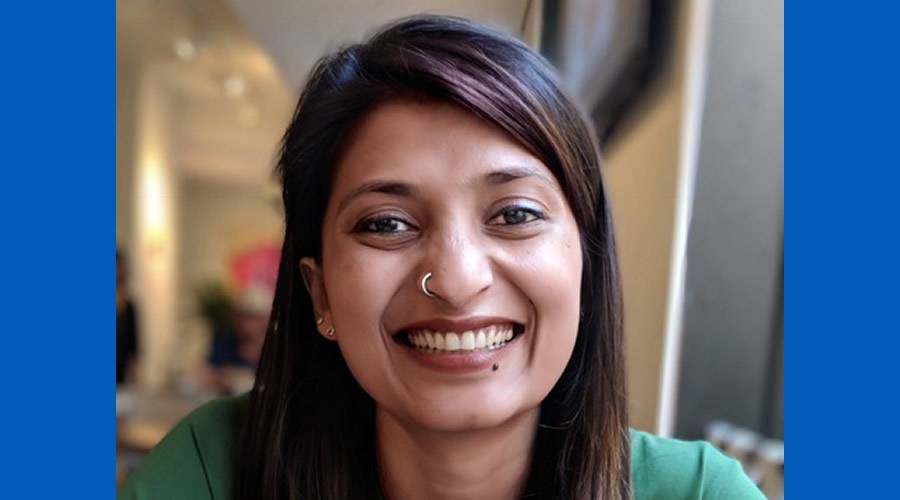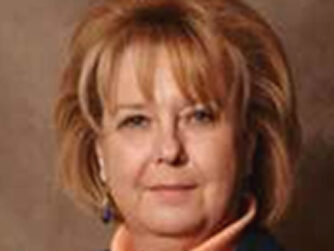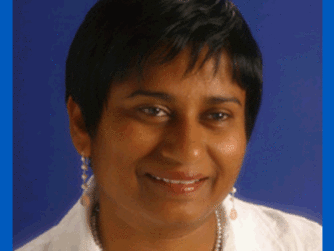Lakshmi Iyer
In this episode, our guest Lakshmi Iyer discusses her work at FSG, a mission-driven consulting firm that is dedicated to advising corporate, foundation, and nonprofit leaders. She describes how philanthropy and corporations can be viewed skeptically and are often misunderstood by social work and explains how for-profit organizations can help solve social issues and create an impact through collaborative partnerships. Models of social innovation and entrepreneurship are summarized and examples of how social workers can serve as change agents are discussed. Social change approaches utilized by organizations and their connection to social work education, research and practice – including how these strategies address current silos – are explored.

Lakshmi Iyer, MPP, MSW is an Associate Director at FSG where she is a core member of FSG’s corporate practice as well as a leader of FSG’s thinking on corporations and racial equity. During her time at FSG, Lakshmi Iyer has led projects with a variety of companies including Intuit, Toyota, BHP, and Cisco, to help them design and implement strategies for creating shared value, enhancing their corporate philanthropy, and community development. She brings expertise in many issues including community development, financial inclusion, racial and gender equity and has worked in diverse contexts including the U.S., India, Brazil, Japan, and Australia. She is also the co-author of a series entitled, “The Competitive Advantage of Racial Equity.” Lakshmi Iyer also leads speaking engagements on the topics of shared value, racial equality and social impact measure.
Interviewer: Gokul Mandayam, PhD






This podcast really shed light on how both non for profits and for profit organizations/companies can work together to advocate and implement social change within their customers communities. Ms. Iyer shared the expression of “shared value” between these two types of businesses. I recently met with an insurance company agent regarding the current percentage of homeless individuals in the city of Buffalo who are uninsured. I, a social worker, work directly with the customers who are uninsured and the agent was looking for ways to increase their enrollment. We discussed and formulated a strategic plan where I was able to make referrals to his agency and in return the company would donate high priced items to the shelter. The best part was this insurance company worked specifically with Medicaid and Medicare and all of the Managed Care Providers offered throughout those Programs. It allowed an easy access to insurance for our customers, promoted a social change within the homeless population of Buffalo, and provided benefits to the Company involved. Although Insurance companies are often non for profit establishments, I feel the term “shared value” could be understood in the context.
Iyer shared a phrase from a previous professor. It stated “ you have to be in the system to change the system”. I agree with the information shared. It brings a new thought of how all aspects of social work are needed in order for social change or social justice to occur. They discussed all three levels of social work. I complement the need for participating in all three levels in order to decipher the social problem being addressed. For profit agencies often have silos as mentioned and those silos persist when other entities involved with their consumers are depreciated or overlooked. When working with service providers of the same customer base and including all three levels of the provider, social values will be easier to yield and social change could be achieved.
Iyer also shared the need for diverse background of those providing guidance to the social change matter. It correlates with the need for a diverse background of those who are represented on the board. Iyer discussed the assistance her position allows for when mediating with a board of directors to bring the “shared value” to a realistic topic. Being a realist while being an optimistic is how Iyer described herself in this podcast. I imagine promoting being optimistic and real could lead to greater social change within itself. Bringing social value to two establishments, creating one goal and removing the barriers to social change.